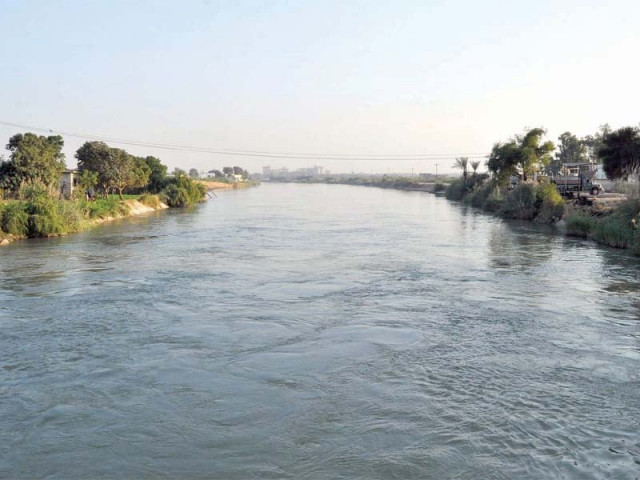Kalri Baglihar feeder: Kotri continues to send toxic substances along Karachi’s way
Govt formed a committee to monitor flow after Keenjhar Lake’s contamination۔

The same feeder, which supplies water to Karachi, was also believed to have contaminated a part of Thatta’s Keenjhar Lake, where a number of cattle, birds and marine life were killed. Following the contamination, the Sindh government formed a committee to establish a permanent monitoring mechanism to prevent future disasters.
The committee comprised officials of the Karachi Water and Sewerage Board (KWSB), the Sindh Environmental Protection Agency (Sepa), the irrigation department, SITE, the public health engineering, commissioner of Hyderabad division and an independent water expert. This team was supposed to form a plan to check water quality from the canal’s origin at Kotri Barrage to Keenjhar and Gharo and maintain a watch over seasonal drains.
The canal takes industrial wastewater from Kotri, SITE, and municipal and hospital waste from urban settlements as it passes through the Kotri taluka. This poses a threat to residents of not only Kotri, but also villages located between Keenjhar and Kotri, where there are no water filtration facilities. It has been over five months since the Sindh chief secretary issued a notification, yet the committee remains dysfunctional. The commissioner of Hyderabad division called two meetings in September but to no avail.

For their part, the officials give different reasons for the delay. “The government didn’t issue funds required to begin the work,” said Sepa director-general Rafiuddin Ghori. The government was supposed to give Rs45 million to set up a laboratory in Keenjhar. Technical officials and scientists would run this laboratory, which will be equipped to regularly monitor water quality at Gharo, but the money has yet to come through, he explained.
Meanwhile, water expert Dr Ahsan Siddiqui holds KWSB managing director Misbahuddin Farid responsible for the delay. According to the notification, KWSB has to conduct a survey of the open canal to identify the inflow of domestic and other waster from the villages and industrial units. “The KWSB is the biggest stakeholder among all the members but its managing director is not showing any interest,” he said.
“I have tried several times but I have not been able to get an appointment or get a hold of him over the phone,” he said. Farid was, however, not available for comments.
Kotri Barrage chief engineer Mithal Abbasi was unaware of a drainage outlet in Kotri that was still emptying toxic waste directly into the canal, but when pointed out, he said, “I am immediately moving my staff to close it”.
“We are less interested in taking precautionary measures that save lives,” said Dr Siddiqui. “We usually get into action when a tragedy or catastrophe has occurred.”
Published in The Express Tribune, December 13th, 2012.



















COMMENTS
Comments are moderated and generally will be posted if they are on-topic and not abusive.
For more information, please see our Comments FAQ